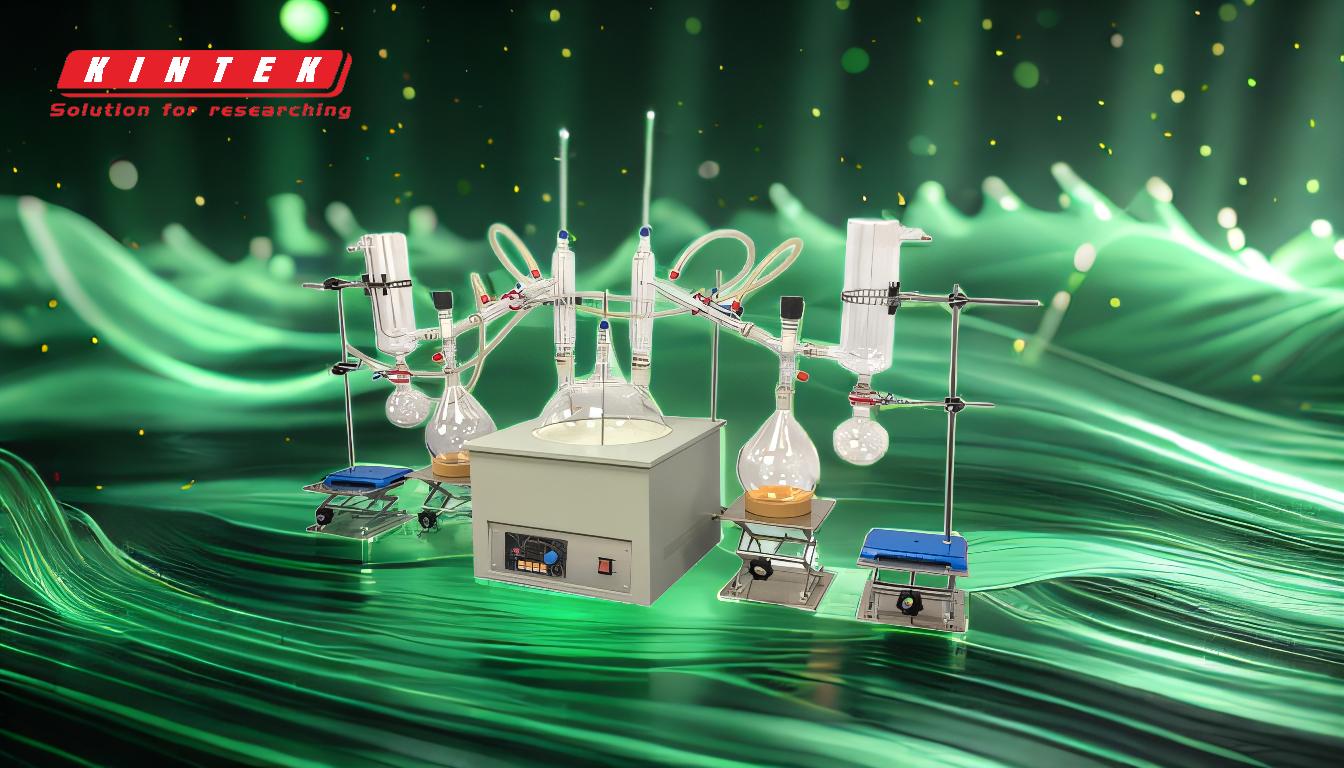Vacuum distillation is preferred over normal distillation when dealing with compounds that have high boiling points or are thermally sensitive. By reducing the pressure, vacuum distillation lowers the boiling points of these compounds, allowing them to be distilled at lower temperatures. This prevents decomposition, oxidation, or other adverse reactions that could occur at higher temperatures. It is particularly useful in industries like pharmaceuticals, essential oils, and petrochemicals, where high-purity distillates are required. Additionally, vacuum distillation can improve efficiency, reduce energy costs, and enhance the separation of close-boiling mixtures, making it a valuable technique for complex separations.
Key Points Explained:

-
Handling High Boiling Point Compounds:
- Vacuum distillation is ideal for compounds with boiling points above 392°F (200°C), which are difficult to distill under normal atmospheric pressure.
- By reducing the pressure, the boiling point of these compounds is lowered, enabling distillation at safer and more manageable temperatures.
- Example: Heavy hydrocarbons in petrochemical refining or essential oils in the fragrance industry.
-
Preventing Thermal Decomposition:
- Many compounds, such as organic molecules or pharmaceutical intermediates, decompose when heated to their normal boiling points.
- Vacuum distillation minimizes thermal degradation by operating at lower temperatures, preserving the integrity of the compounds.
- Example: THC and CBD isolation in the cannabis industry, where heat-sensitive cannabinoids and terpenes require gentle processing.
-
Improving Separation of Close-Boiling Mixtures:
- Vacuum distillation enhances the separation of compounds with similar boiling points by reducing the required number of equilibrium stages.
- This is particularly useful in industries like petrochemicals, where fractional distillation alone may not achieve the desired purity.
- Example: Separating aromatic compounds in crude oil refining.
-
Increasing Yield and Purity:
- The reduced pressure and lower temperatures in vacuum distillation lead to higher-purity distillates with minimal impurities.
- It also reduces the risk of polymerization or side reactions, which can occur at higher temperatures.
- Example: Producing high-purity isolates for medicinal or industrial applications.
-
Energy and Cost Efficiency:
- While vacuum distillation may have slightly higher operating costs due to the need for vacuum pumps, it can reduce capital costs by allowing for smaller distillation columns.
- Lower operating temperatures also translate to energy savings, especially for large-scale industrial processes.
- Example: Industrial-scale vacuum distillation in chemical manufacturing.
-
Safety Considerations:
- Vacuum distillation is safer for handling flammable or reactive compounds, as the lower temperatures reduce the risk of combustion or adverse reactions.
- This makes it a preferred method for processing sensitive organic compounds.
- Example: Distillation of volatile organic compounds (VOCs) in laboratories or industrial settings.
-
Applications in Specific Industries:
- Pharmaceuticals: Used to isolate heat-sensitive active pharmaceutical ingredients (APIs) without compromising their structure or efficacy.
- Essential Oils: Ensures the preservation of delicate aromatic compounds that could be lost or altered at high temperatures.
- Petrochemicals: Facilitates the separation of heavy fractions and complex mixtures in crude oil refining.
- Cannabis Industry: Essential for producing high-purity THC and CBD isolates with minimal thermal degradation.
In summary, vacuum distillation is preferred when dealing with high-boiling-point, thermally sensitive, or chemically reactive compounds. It offers significant advantages in terms of product quality, safety, and efficiency, making it a critical technique in various industrial and laboratory applications.
Summary Table:
| Key Advantage | Description | Example Applications |
|---|---|---|
| Handling High Boiling Points | Lowers boiling points, enabling distillation at safer temperatures. | Petrochemical refining, essential oils. |
| Preventing Thermal Decomposition | Minimizes degradation of heat-sensitive compounds. | THC/CBD isolation, pharmaceutical intermediates. |
| Improved Separation | Enhances separation of close-boiling mixtures. | Aromatic compound separation in crude oil refining. |
| Higher Yield and Purity | Produces high-purity distillates with minimal impurities. | Medicinal isolates, industrial applications. |
| Energy and Cost Efficiency | Reduces energy costs and allows for smaller distillation columns. | Industrial-scale chemical manufacturing. |
| Safety | Safer for flammable or reactive compounds due to lower temperatures. | Distillation of VOCs in labs or industrial settings. |
| Industry Applications | Pharmaceuticals, essential oils, petrochemicals, cannabis. | API isolation, aromatic preservation, heavy fraction separation, THC/CBD production. |
Ready to optimize your distillation process? Contact us today to learn how vacuum distillation can benefit your application!











